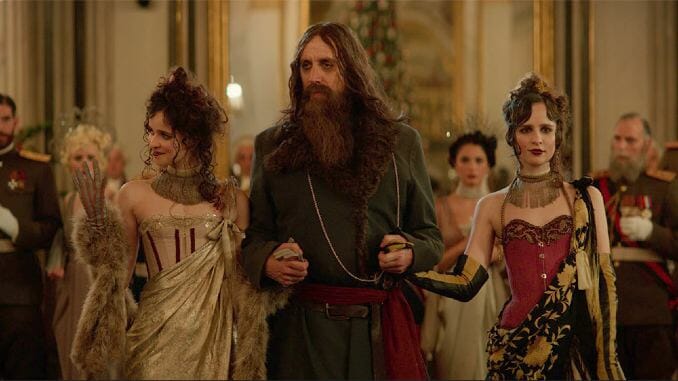The King’s Man Is an Off-Putting Installment in a Series That Should Have Already Ended

Matthew Vaughn’s Kingsman series has always, more or less, done its job. The live-action treatment Vaughn gave to Mark Millar’s 2012 graphic novel series The Secret Service in 2015 provided audiences with a bloodier, cruder, more adult-oriented action blockbuster to offset the burgeoning stronghold of superhero films. The Kingsman, of course, are a different kind of superhero: A private intelligence service founded by members of the British elite, who lost their children during the first World War and decided to put their fortunes towards making the world a better place. The Kingsman, whose name derives from a fictional London tailors’ shop, are equipped with a charming array of everyday items that double as lethal weapons, impressively choreographed hand-to-hand combat, big name A-list actors, Sofia Boutella’s breakout as an ass-kicking double amputee, fun fight sequences set to pop songs and also Mark Strong looking very handsome. The conservative bent of Vaughn’s films has made the franchise’s attempt at politics more goofy than anything, but beyond that, both Kingsman: The Secret Service and its sequel Kingsman: The Golden Circle succeed at being exciting, entertaining, silly action fluff. So, it gives me no pleasure to report the The King’s Man, Vaughn’s attempt at prequelizing his series, has very little of any of the above livening details that made the first two films worth watching.
Going off the aforementioned origins of The Kingsman faction, Vaughn takes us back to the early 1900s, during which the Duke of Oxford, Orlando (Ralph Fiennes) has crafted a wide-spanning network of hired help working for him as a covert intelligence operation. Twelve years following the death of his wife (who preached that “people born into privilege lead by example”) during the Boer War, Orlando—a pacifist who begrudges his fellow British upperclassmen, championing the unsung worth of the servant class—and his war-mongering son Conrad (Harris Dickinson) end up embroiled in a scheme concocted by an amusingly satirical league of The World’s Most Evil Guys. Said villain group includes real-life names like Rasputin, Lenin, Gavrilo Princip and Mata Hari. They’re led by a shadowy Scotsman who does all but twirl a handlebar mustache as he orchestrates the attempted decimation of the British empire—leading to the assassination of Archduke Franz Ferdinand and, naturally, World War I.
Orlando shudders at the thought of his son going off to serve in a war he’s actively trying to prevent. He would, instead, prefer Conrad to protect his country under his own watchful eye with the as-yet-unnamed Kingsman. This leads the film to its most enthralling component: Rasputin, played by a heavily-makeuped Rhys Ifans making a meal out of the scenery with his gratuitous Russian drawl.
-

-

-

-

-

-

-

-

-

-

-

-

-

-

-

-

-

-

-

-

-

-

-

-

-

-

-

-

-

-

-

-

-

-

-

-

-

-

-

-








































